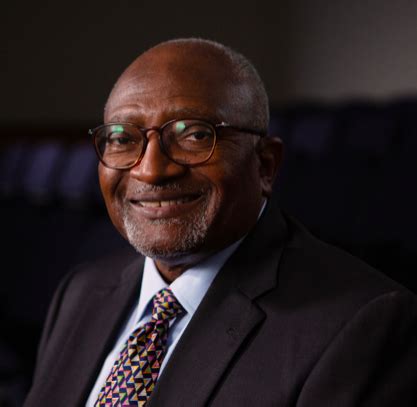A Quote by Grace Lee Boggs
The Vietnam War was taking place, which was raising all sorts of questions in the United States, and it was forcing Asian-Americans to stop thinking of themselves as model minorities and to identify themselves more with world revolution, which was very important in my development.
Related Quotes
Within the model minority rhetoric, Asian Americans are represented as “good” minorities and African Americans are represented as “bad” minorities. Here, the achievements of Asian Americans are used to discipline African Americans. As model minorities, Asian Americans achieved the status of “honorary Whites”. Again it is important to point out that the honorary whiteness of Asian Americans was granted at the expense of Blacks. It is also significant that as “honorary Whites,” Asian Americans do not have the actual privileges associated with “real” whiteness.
An environmental revolution is taking shape in the United States. This revolution has touched communities of color from New York to California and from Florida to Alaska - anywhere where African Americans, Latinos, Asians, Pacific Islanders, and Native Americans live and comprise a majority of the population. Collectively, these Americans represent the fastest growing segment of the population in the United States. They are also the groups most at risk from environmental problems.
Most of us who were opposed to the war, especially in the early '60's - the war we were opposed to was the war on South Vietnam which destroyed South Vietnam's rural society. The South was devastated. But now anyone who opposed this atrocity is regarded as having defended North Vietnam. And that's part of the effort to present the war as if it were a war between South Vietnam and North Vietnam with the United States helping the South. Of course it's fabrication. But it's "official truth" now.
China is the center of the Asian energy security grid, which includes the Central Asian states and Russia. India is also hovering around the edge, South Korea is involved, and Iran is an associate member of some kind. If the Middle East oil resources around the Gulf, which are the main ones in the world, if they link up to the Asian grid, the United States is really a second-rate power. A lot is at stake in not withdrawing from Iraq.
I think that we're at an alarming moment in American political development and maybe in world political development, because the United States is so influential. If the trends of the last thirty or forty years are not halted and reversed - and those trends include increasingly inequality, a crumbling public life, a disintegrating public infrastructure, an exhausted ecology, and a huge war arsenal, and more and more war making - then I'm rather gloomy about the prospects for the American future and the harm that the United States could do to the world.
Every book that comes out, every article that comes out, talks about how - while it may have been a "mistake" or an "unwise effort" - the United States was defending South Vietnam from North Vietnamese aggression. And they portray those who opposed the war as apologists for North Vietnam. That's standard to say. The purpose is obvious: to obscure the fact that the United States did attack South Vietnam and the major war was fought against South Vietnam.
A single word indicative of doubt, that any thing, or every thing, in that country is not the very best in the world, produces an effect which must be seen and felt to be understood. If the citizens of the United States were indeed the devoted patriots they call themselves, they would surely not thus encrust themselves in the hard, dry, stubborn persuasion, that they are the first and best of the human race, that nothing is to be learnt, but what they are able to teach, and that nothing is worth having, which they do not possess.
I think that the war on drugs is domestic Vietnam. And didn't we learn from Vietnam that, at a certain point in the war, we should stop and rethink our strategy, ask ``Why are we here, what are we doing, what's succeeded, what's failed?'' And we ought to do that with the domestic Vietnam, which is the war on drugs.
It is often said that Americans have no sense of history. Ask a college student who Jimmy Carter was and they will likely reply that he was a general in the Civil War, which occurred in 1492, when Americans dumped tea into the Gulf of Tonkin, sparking the First World War, which ended with the invasion of Grenada and the development of the cotton press.
Every American should be forced to live outside the United States for a year or two. Americans should be forced to see how ridiculous they appear to the rest of the world! They should listen to someone else's version of themselves--to anyone else's version! Every country knows more about America than Americans know about themselves! And Americans know absolutely nothing about any other country!
I don't believe that China, in my lifetime or maybe my children's lifetime, be equal to the United States militarily speaking, but they are very careful to avoid any engagement in war, they are basically a peaceful country, which gives them another advantage over the United States when we are much more inclined to go to war for various reasons.
The war for our Union, with all the constitutional issues which it settled, and all the military lessons which it gathered in, has throughout its dilatory length but one meaning in the eyes of history. It freed the country from the social plague which until then had made political development impossible in the United States. More and more, as the years pass, does the meaning stand forth as the sole meaning.
The U.S. directed the war against South Vietnam. There was a political settlement in 1954. But in the late '50's the United States organized an internal repression in South Vietnam, not using its troops, but using the local apparatus it was constructing. This was a very significant and very effective campaign of violence and terrorism against the Vietminh - which was the communist-led nationalist force that fought the French. And the Vietminh at that time was adhering to the Geneva Accords, hoping that the political settlement would work out in South Vietnam.
































